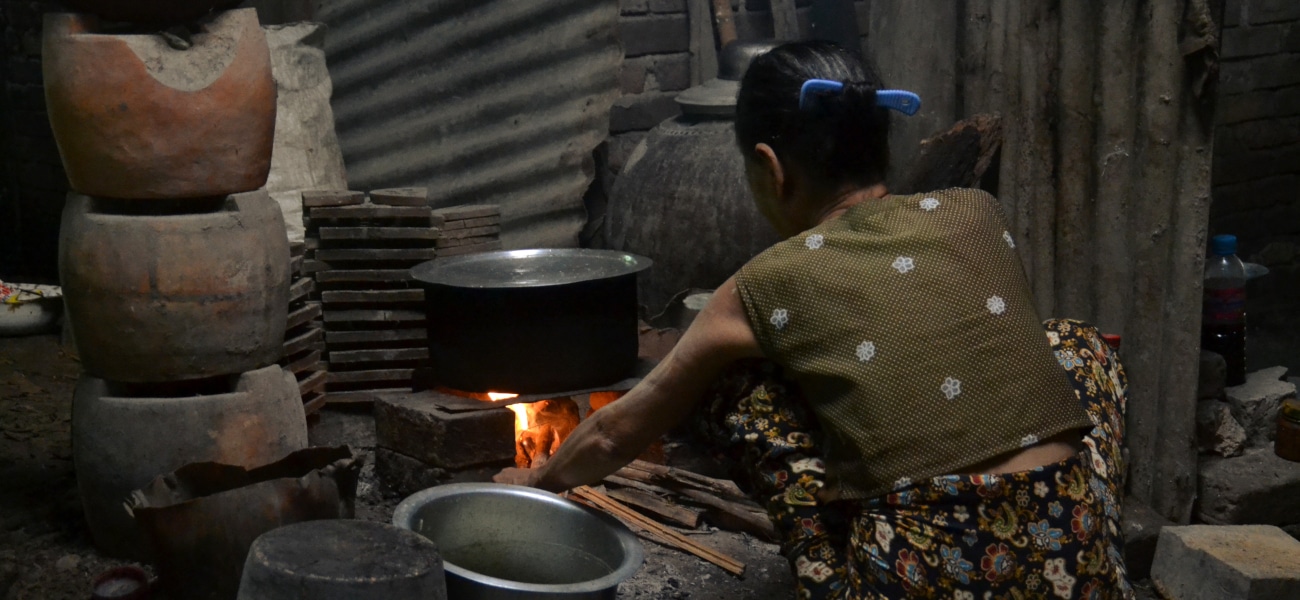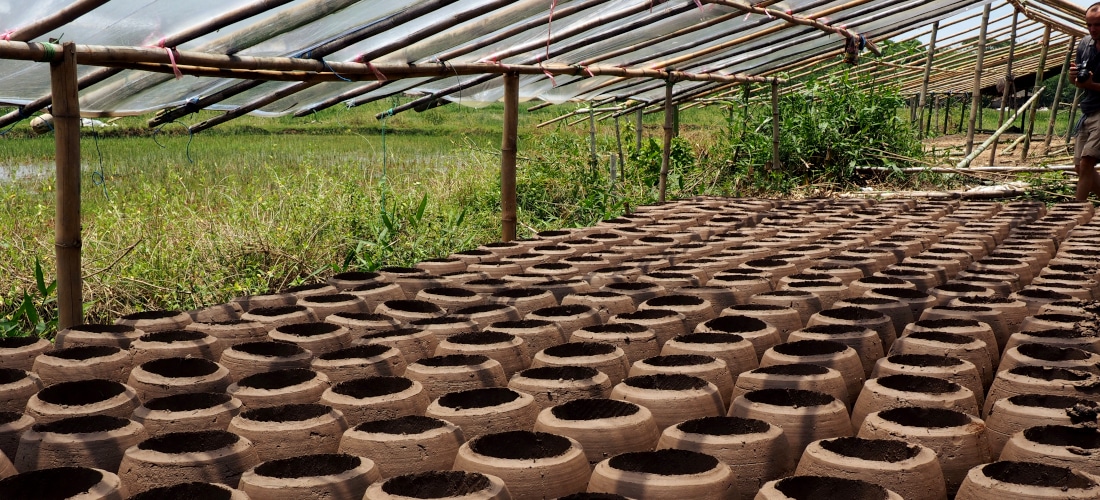Myanmar
Context and challenges
Myanmar is the second largest country in Southeast Asia, stretching from the Himalayas in the north to the beaches in the Bay of Bengal in the south, and home to a diverse multi-ethnic population of 54 million people.
After decades of isolation, in 2011 the country launched a set of political, social and economic reforms starting a complex transition that is still under way. Myanmar currently ranks 148th out of 189 countries according to the Human Development Index (HDI). Despite some recent progresses, one-third of Myanmar’s population lives in poverty, one of the highest rates in the subregion, with wide internal differences among regions, and between urban and rural areas. Moreover, the country is facing a highly complex peace process between the National Government and dozens of Ethnic Armed Groups that over the decades had engaged a low intensity conflict in several areas of the country. In 2015 the Government promoted a Nation Ceasefire Agreement (NCA) which has paved the way for the ongoing peace process. Nevertheless, as of July 2019, more than 240.000 people were still displaced in camps within the country, often with lack of access to basic services.
Myanmar is also one of the countries most affected by climate change, being at high risk of natural disasters such as floods, cyclones, earthquakes and droughts. Myanmar primary energy supply comes mostly from biomass and hydropower. Only around one-third of Myanmar’s people is connected to the national electricity grid, mainly in urban areas. Electricity shortages and supply disruptions are widespread due to expansion of the grid, the rise in demand and the lack of investment in increasing the energy supply. The majority of Myanmar’s population, around 90%, relies on biomass for their daily domestic energy needs. Forest degradation is a major concern, with an annual deforestation rate of 2 percent.
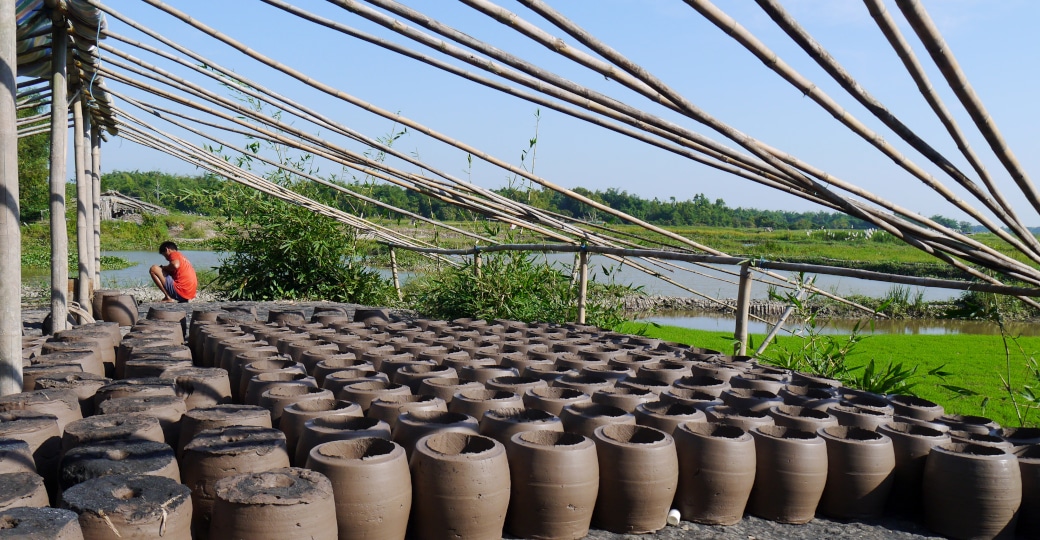
Geres in Myanmar
Since 2014, Geres has been working in Myanmar to increase the local communities’ access to clean energy solutions, with the aim of alleviating poverty and promoting the sustainable use of natural resources.
During 4 years, Geres implemented SCALE (Strengthening improved Cookstove Access towards a better quality of Life and Environment). By working with all actors along the cookstove supply chains, and by supporting them through efforts to foster a policy environment that is supportive of positive climate and energy action, SCALE helped local producers to switch their production to fuel efficient cookstoves. Two products, one for firewood used in rural areas and one for charcoal used in urban ones, were designed and tested in the laboratory installed by Geres. Also, the new brand San Pya was created for these locally produced fuel-efficient cookstoves. The project disseminated more than 40,000 units contributing to the country’s economic development, environmental protection efforts, and an overall improved quality of life, especially for women, the main cookers in Myanmar’s households.
Since 2018, Geres launched the project REACH (Rural Energy Access to Communities and Households) to expand the access to clean energy solutions by communities in rural remote areas of the central Dry Zone of Myanmar. By developing an innovative and inclusive last-mile distribution social business relying on community-based entrepreneurs, most of them women, REACH contributes to structuring an environment conducive to the dissemination of high-quality energy-efficient product. These products are safer, more cost-efficient in the long term and reduce the households’ strenuous chores, which impacts disproportionately women, and thus improving the living conditions in rural communities. REACH also supports the emergence and strengthening of women’s entrepreneurship in the energy sector, empowering them and boosting the new entrepreneurs’ livelihoods by developing their business and technical skills and facilitating their access to financing.
In Myanmar, Geres is also developing other projects and studies around productive uses of energy and industrial usage of biomass. On the latter and based on the fruitful collaboration with H&M in Cambodia, Geres undertook a study to assess the potential of sustainable biomass fuel alternatives for thermal energy generation for H&M garment suppliers in Myanmar.
GERES’ PROJECTS IN MYANMAR
GERES NEWS IN MYANMAR
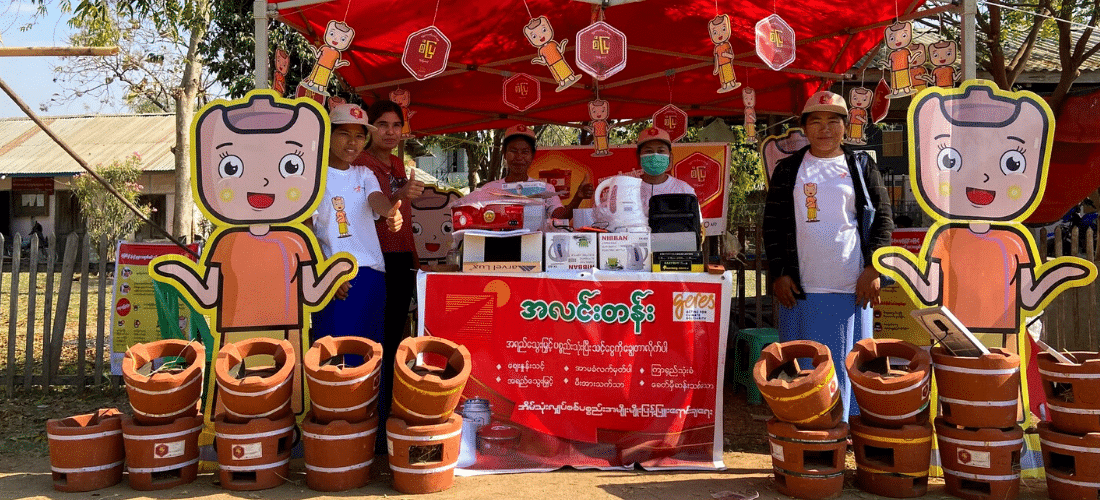
In Myanmar, 9 women trained by Geres in the dissemination of sustainable energy kits participate in the great Pagoda Festival
After theorie, there is practice. On March 15th, 9 Burmese women trained by Geres in sustainable entrepreneurship in rural areas, sold ...
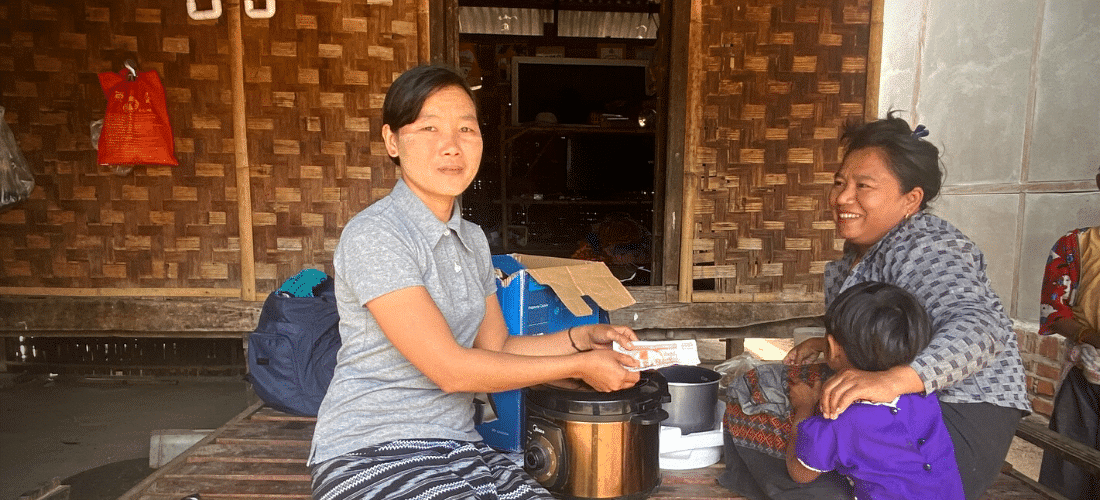
According to a recent Geres study, rural Myanmar is enthusiastically adopting electric cooking
With a view to facilitating access to reliable, sustainable, affordable energy services for everyone, as well as combating excessive ...
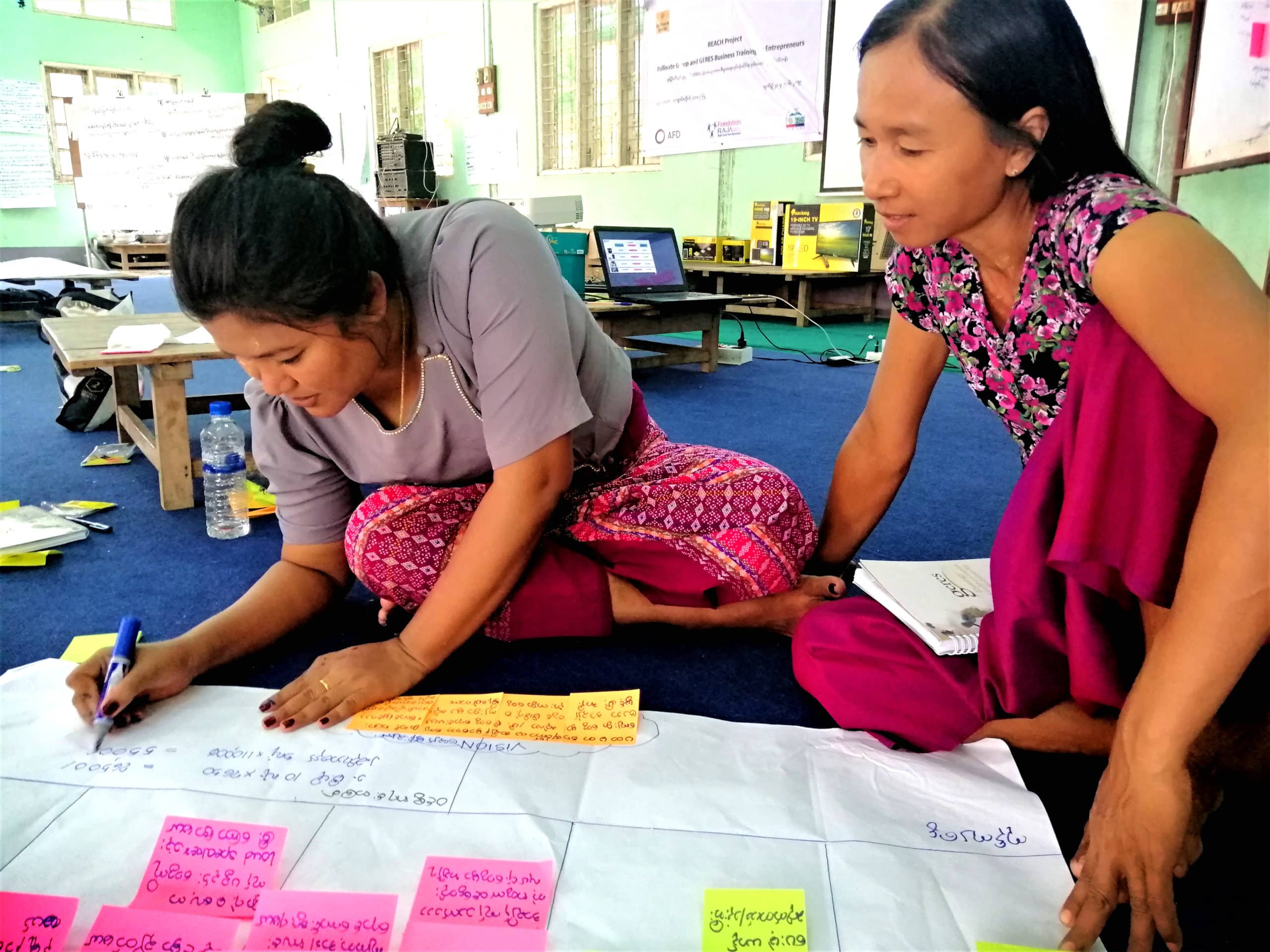
Women’s entrepreneurship, a source of energy in rural Myanmar
Their names are Thida Hlaing, Myint Win, Su Pyae… Over the last few months, all of them have become distributors of sustainable energy ...
WOULD YOU LIKE TO TAKE ACTION
AND SUPPORT WHAT WE DO?
Tell us who you are and find your means of action.

